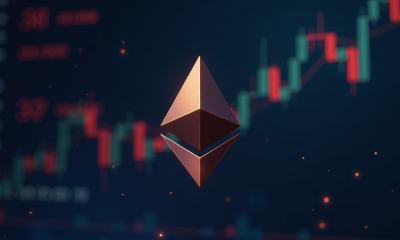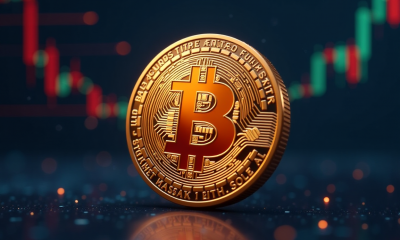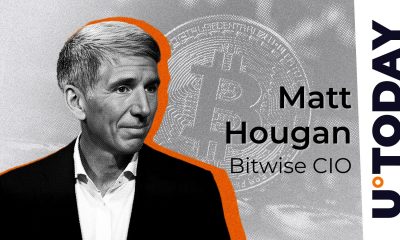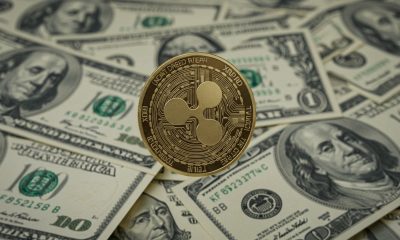
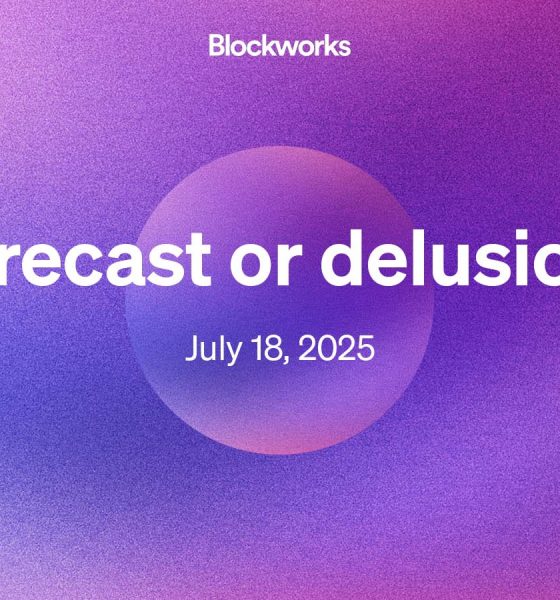
Cryptocurrency
Friday charts: Fiscal dominance and super intelligence – Crypto News
This is a segment from The Breakdown newsletter. To read more editions, subscribe.
“What the market expects is almost never what happens.”
— Jamie Dimon
US equities hit all-time highs again this week, and it’s hard to know what that means.
Consider that this is also the week that the president of the United States called the chair of the Federal Reserve a “numbskull.”
Worse than name-calling, the president went on to say that the FOMC should lower interest rates to 1%, expressly so the government could save “One Trillion Dollars a year in Interest Costs.”
That is the definition of “fiscal dominance”: When a central bank keeps interest rates artificially low to accommodate a government’s deficit spending, with unthinkable consequences presumably to follow.
Fortunately, we’re not quite there yet.
Chair Powell still has 10 months on the job and the president hasn’t figured out how to fire him, although he appears to still be trying.
(We live in a bizarre timeline where the amount of marble included in the facade of the Federal Reserve building is relevant to monetary policy.)
But the leading candidate to take Powell’s place, Kevin Warsh, is openly offering to subjugate the Fed to the White House in return for the appointment — a Faustian bargain for which we would all pay the price.
This seems like something that markets would worry about: Economists have long warned that fiscal dominance is guaranteed to undermine faith in the dollar, government debt and the entire US economy.
But US stocks continue to levitate and Treasury bonds seem generally unperturbed.
The legendary hedge fund manager Stanley Druckenmiller once said that the best economist he knew was the stock market, so maybe that means we can rest easy?
Can we take the market’s sanguine price action as an endorsement of steep tariffs and Fed bullying? Or is it a prediction that he won’t do what he says he’ll do?
Alternatively, could the market have conceded that tariff and monetary policy are currently too volatile to bother predicting?
Or is it a sign that policy doesn’t matter as much as we thought?
I’m probably overthinking it.
Fed Governor Christopher Waller, who doesn’t seem to be campaigning to be Powell’s replacement, said this week that “with inflation near target and the upside risks to inflation limited, we should not wait until the labor market deteriorates before we cut the policy rate.”
The market loves rate cuts, so maybe that’s all that matters.
Or could it be that none of this matters because AI is on the verge of changing everything anyway?
This week, Mark Zuckerberg said that Meta is “starting to see early glimpses of self-improvement with [AI] models” and that “superintelligence is now in sight.”
Specifically, he thinks we could be as little as two or three years away from artificial intelligence surpassing human intelligence — not just in coding or newsletter writing, but in all fields.
If a world of superintelligent AIs with the capacity to self-improve is less than three years away, should we care whether Fed funds is 1% or 5%? Or whether tariffs are 0% or 50%?
That will be a whole new world, presumably, and the best economist Stanley Druckenmiller knows seems to think it will be a good one.
Let’s hope it’s right.
Imports are inflating:
An academic study finds that tariffs have caused the price of imports to rise faster than the price of domestic goods. It hasn’t affected the US economy much as of yet, but Ben Cassleman explains why that doesn’t mean it won’t. Analysts at Morgan Stanley think the economy should start showing the negative impact of tariffs in the third quarter (which is now).
For now, things are pretty good:
Ed Yardeni highlights that the “misery index” — the sum of the unemployment and inflation rates — remains well below the long-term average.
Economists have been too worried lately:
Anna Wong notes that US growth and inflation data have both been better than consensus expectations recently.
It’s been worse than expected for male college grads:
The FT columnist John Burn-Murdoch notes that young men with college degrees are just as likely to be unemployed as young men without degrees. Women college graduates continue to fare better, probably because they’re more likely to work in health care.
Don’t blame comp sci:
Contrary to popular belief, Burn-Murdoch notes as well that “relative to the pre-generative AI era, recent grads have secured coding jobs at the same rate as they’ve found any job, if not slightly higher.”
US companies are still the best:
Goldman Sachs reminds us that big US companies are far more profitable than companies in the rest of the world. They might get even more so: Amazon and Microsoft were both said to be reducing their payrolls by thousands of employees this week, reportedly because they believe they can ask AI to do more of the work.
On the other hand…
By multiple measures, China has pulled ahead of the US in scientific research. Maybe US mega tech companies will make up the difference. But if we’re in a two-country race to superintelligence, now seems like a bad time for the government to be cutting research grants.
New highs are normal:
This graphic from @ryandetrick is a reminder that making new highs is the norm for US equities. This year’s total of nine is still pretty modest.
Zimbabwe stocks made a lot of new highs, too:
Zimbabwean stock prices boomed during the bout of hyperinflation that started in 2019 — simply because stocks are denominated in the local currency. When the currency was revalued in March, stocks were revalued, too.
Not Zimbabwe yet:
Despite the rising risk of fiscal dominance, the market for forward inflation expectations implies that US inflation will be just 2.3% in five years’ time — which would be great news for the world.
If the market is keeping its faith in the Fed, shouldn’t we all?
Jamie Dimon would tell you that’s not how it works, but let’s hope he’s wrong.
Have a great weekend, predictive readers.
Get the news in your inbox. Explore Blockworks newsletters:
-
![DIS Elliott Wave technical analysis [Video]](https://dripp.zone/news/wp-content/uploads/2025/06/DIS-Elliott-Wave-technical-analysis-Video-Crypto-News-400x240.jpg)
![DIS Elliott Wave technical analysis [Video]](https://dripp.zone/news/wp-content/uploads/2025/06/DIS-Elliott-Wave-technical-analysis-Video-Crypto-News-80x80.jpg) others1 week ago
others1 week agoSkies are clearing for Delta as stock soars 13% on earnings beat – Crypto News
-
![DIS Elliott Wave technical analysis [Video]](https://dripp.zone/news/wp-content/uploads/2025/06/DIS-Elliott-Wave-technical-analysis-Video-Crypto-News-400x240.jpg)
![DIS Elliott Wave technical analysis [Video]](https://dripp.zone/news/wp-content/uploads/2025/06/DIS-Elliott-Wave-technical-analysis-Video-Crypto-News-80x80.jpg) others1 week ago
others1 week agoSkies are clearing for Delta as stock soars 13% on earnings beat – Crypto News
-

 Blockchain1 week ago
Blockchain1 week agoInsomnia Labs Debuts Stablecoin Credit Platform for Creators – Crypto News
-

 Blockchain1 week ago
Blockchain1 week agoAnt Group Eyes USDC Integration Circle’s: Report – Crypto News
-

 Cryptocurrency5 days ago
Cryptocurrency5 days agoWhale Sells $407K TRUMP, Loses $1.37M in Exit – Crypto News
-

 others1 week ago
others1 week agoUSD/CAD trades with positive bias below 1.3700; looks to FOMC minutes for fresh impetus – Crypto News
-

 Blockchain1 week ago
Blockchain1 week agoBinance Founder Backs BNB Treasury Company Aiming For US IPO – Crypto News
-

 Blockchain1 week ago
Blockchain1 week agoKraken and Backed Expand Tokenized Equities to BNB Chain – Crypto News
-

 others1 week ago
others1 week agoEUR/GBP posts modest gain above 0.8600 ahead of German inflation data – Crypto News
-
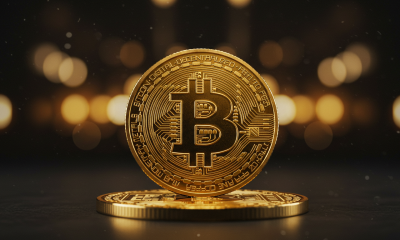
 Cryptocurrency1 week ago
Cryptocurrency1 week agoBitcoin Breaks New Record at $111K, What’s Fueling the $120K Price Target? – Crypto News
-
Technology1 week ago
XRP Eyes $3 Breakout Amid Rising BlackRock ETF Speculation – Crypto News
-
Technology1 week ago
Breaking: SharpLink Purchases 10,000 ETH from Ethereum Foundation, SBET Stock Up 7% – Crypto News
-

 others1 week ago
others1 week agoEUR/GBP climbs as weak UK data fuels BoE rate cut speculation – Crypto News
-

 Blockchain1 week ago
Blockchain1 week agoBitcoin Hits All-Time High as Crypto Legislation Votes Near – Crypto News
-
Business1 week ago
PENGU Rallies Over 20% Amid Coinbase’s Pudgy Penguins PFP Frenzy – Crypto News
-

 Blockchain6 days ago
Blockchain6 days agoRobinhood Dealing With Fallout of Tokenized Equities Offering – Crypto News
-

 Blockchain1 week ago
Blockchain1 week agoXRP Rally Possible If Senate Web3 Crypto Summit Goes Well – Crypto News
-

 Blockchain1 week ago
Blockchain1 week agoEthereum Bulls Roar — $3K Beckons After 5% Spike – Crypto News
-

 Blockchain1 week ago
Blockchain1 week agoAustralia Banks Join Digital Currency Trial for Tokenized Assets – Crypto News
-
Business1 week ago
Did Ripple Really Win XRP Lawsuit Despite $125M Fine? Lawyer Fires Back at CEO – Crypto News
-

 Cryptocurrency1 week ago
Cryptocurrency1 week agoXRP price forecast as coins surges 2.19% to $2.33 – Crypto News
-

 Metaverse1 week ago
Metaverse1 week agoHow Brands Can Deepen Customer Connections in the Metaverse – Crypto News
-

 Technology1 week ago
Technology1 week agoPerplexity launches Comet, an AI-powered browser to challenge Google Chrome; OpenAI expected to enter the space soon – Crypto News
-

 Blockchain1 week ago
Blockchain1 week agoSUI Chart Pattern Confirmation Sets $3.89 Price Target – Crypto News
-
others1 week ago
Trump Jr. Backed Thumzup Media To Invest In ETH, XRP, SOL, DOGE And LTC – Crypto News
-

 Technology1 week ago
Technology1 week agoGoogle’s worst nightmare? OpenAI’s new AI web browser is coming soon to challenge Chrome – Crypto News
-
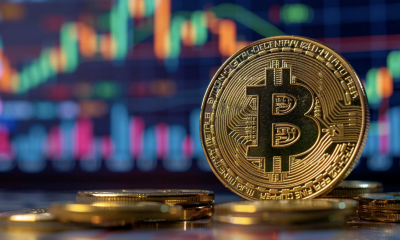
 Cryptocurrency1 week ago
Cryptocurrency1 week agoBitcoin Hits Record Peak. How High Can It Surge in 2025? – Crypto News
-
Technology1 week ago
VC Firm Ego Death Capital Closes $100M Funding to Back Bitcoin-Based Projects – Crypto News
-
Cryptocurrency1 week ago
Tokenized Securities Are Still Securities, US SEC Warns Robinhood, Kraken – Crypto News
-

 others1 week ago
others1 week agoNovaEx Launches with a Security-First Crypto Trading Platform Offering Deep Liquidity and Institutional-Grade Infrastructure – Crypto News
-

 others1 week ago
others1 week agoAnthony Scaramucci Says $180,000 Bitcoin Price Explosion Possible As BTC ‘Supremacy’ Creeps Up – Here’s His Timeline – Crypto News
-

 Cryptocurrency1 week ago
Cryptocurrency1 week agoBitcoin Breaks New Record at $111K, What’s Fueling the $120K Price Target? – Crypto News
-
Business1 week ago
US Senate To Release CLARITY Act Draft Next Week – Crypto News
-

 others1 week ago
others1 week ago$687,220,000 in Bitcoin Shorts Liquidated in Just One Hour As BTC Explodes To $116,000 – Crypto News
-

 Business1 week ago
Business1 week agoS&P Global Downgrades Saks Global’s Credit Rating – Crypto News
-

 Cryptocurrency5 days ago
Cryptocurrency5 days agoSatoshi-Era Bitcoin Whale Moves Another $2.42 Billion, What’s Happening? – Crypto News
-

 Technology1 week ago
Technology1 week ago10 Smartchoice tablets from top brands, curated for everyday use, up to 45% off before Amazon Prime Day Sale – Crypto News
-
others1 week ago
China’s Ant Group With 1.4B Users Taps Circle to Integrate USDC – Crypto News
-

 De-fi1 week ago
De-fi1 week agoOusted Movement Labs Co-Founder Sues Startup in Delaware Court – Crypto News
-

 Blockchain1 week ago
Blockchain1 week agoSei Network Unlocks Japan Market After Hitting $626M in TVL – Crypto News
-
Business1 week ago
Breaking: US SEC Delays Grayscale Avalanche ETF Launch – Crypto News
-
Business1 week ago
XRP Set for Big Week as ProShares ETF Launches July 18 – Crypto News
-
Technology1 week ago
Hyperliquid Hits Record $10.6B OI As HYPE Price Records New ATH – Crypto News
-

 Blockchain6 days ago
Blockchain6 days agoZiglu Faces $2.7M Shortfall as Crypto Fintech Enters Special Administration – Crypto News
-
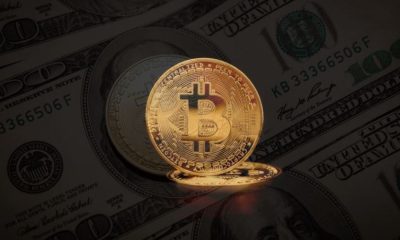
 Cryptocurrency5 days ago
Cryptocurrency5 days agoBitcoin Breaches $120K, Institutional FOMO Takes and House Debate Propel Gains – Crypto News
-
Technology1 week ago
Breaking: Bitcoin Price Hits New ATH Amid Trump Tariff Scare – Crypto News
-
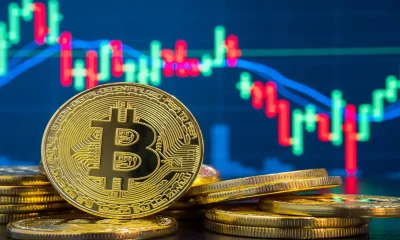
 Cryptocurrency1 week ago
Cryptocurrency1 week agoBitcoin Price Hits New Record Highs, Target Moves to $120K – Crypto News
-

 others1 week ago
others1 week agoJapanese Yen recovers few pips from two-week low against USD; not out of the woods yet – Crypto News
-

 De-fi1 week ago
De-fi1 week agoLarge-Cap Cryptos Climb as Trump’s Tariff Threats Stir Market Uncertainty – Crypto News
-
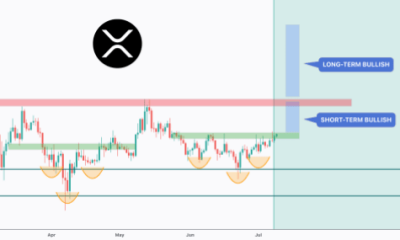
 Blockchain1 week ago
Blockchain1 week agoXRP Forms Inverse Head And Shoulders Pattern, Why A Surge To $3.3 Is Possible – Crypto News







